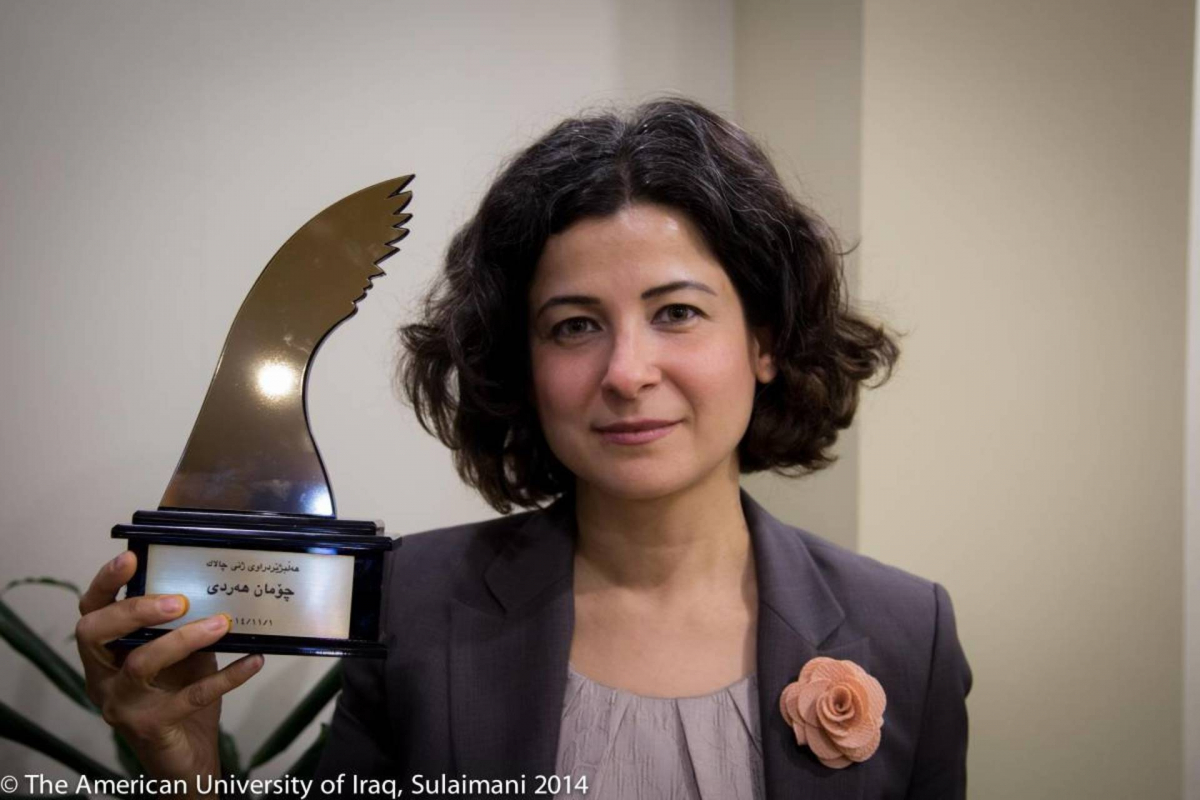Dr. Choman Hardi, professor of English literature at the American University of Iraq, Sulaimani (AUIS) was presented with the Woman’s Award in recognition of her achievements as a creative writer and academic as well as her work on women’s issues, in particular Kurdish women.
Sulaimani, Iraq - November, 2014 - Dr. Choman Hardi, professor of English literature at the American University of Iraq, Sulaimani (AUIS) was presented with the Woman’s Award in recognition of her achievements as a creative writer and academic as well as her work on women’s issues, in particular Kurdish women. The award was presented by Andesha – an independent cultural center and publishing house based in Sulaimani – during their second annual cultural festival in Kurdistan.

While receiving her award at the ceremony, Hardi announced her decision to dedicate her prize to the brave women fighting in Kobane. “Throughout history in this region there have been moments when women have challenged the stereotypical view of woman as a passive, inactive, domestic person who cannot lead, who cannot be brave; who cannot fight. Most recently I think that was done in Kobane.”
The award was officially handed out to the representatives of the women’s military wing in Kobane at a separate event hosted at the Cultural Café in Sulaimani. On her decision to give away her award, Hardi said, “They have challenged the definition of women again and they’ve proved to the community that women can do the same things that men do. And that’s why I thought it’s just fair to give the prize to them because they have become the symbol of resistance, of power, and of empowerment.” When asked about how the women felt on receiving the award, she said, “I believe they were very pleased. Of course, it’s a symbolic gesture. The award didn’t involve anything substantial but its recognition. And, it’s nice to be recognized especially at times like this – in times of crisis and division between the communities.”
On receiving the Woman’s Award herself, Dr. Hardi felt pleased on being recognized for her achievements in Kurdistan. “This is the first time that I receive an award in Kurdistan. This may be partly because I have written mostly in English. I have written poems in Kurdish but those collections came out during the civil war in ’94 and ’96, and I was living in the UK so they didn’t really reach the audience here. Some people think of me as a British writer even though all my subject matter is very Kurdish.” she said. “I think one can have a dual identity and one can re-create ‘Kurdishness’ or any other ethnicity in a different language. I hadn’t even been invited to do a poetry reading here until last year when the British Council held Niniti Literature Festival in Erbil. So, for me it’s a big thing because it’s the first time I received acknowledgement from the community itself.”

